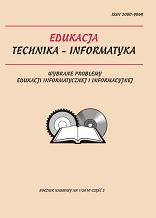Guerre, diplomatie et propagande. La France et la Roumanie pendant la Crise Orientale (1875-1878)
Author(s): Iulian Oncescu / Language(s): French
/ Issue: 14/2010
Keywords: France; Romania; Oriental crisis (1875-1878); diplomacy; war; independence
The French eastern politics were rather inactive after 1871. In Romania’s case, it was full of reproaches and of suspicions, as Paris was not anylonger longer pursuing any future goals. Its own internal problems as well as the influences of Austro-Hungary, Russia and Germany from the outside, as far as Eastern Europe was concerned until 1878, encouraged France rather to abandon this area, and implicitly its previous interests concerning Romania. Now France threatened Romania on numerous occasions, the French conception being obviously more insistent concerning the diplomatic tutorship of the Romanians. During the Empire’s last years, as well as during the first years of the Third Republic, the French diplomacy no longer accepted the Romanian perspective and will for independence. We consider that the reason for this static attitude of the French diplomacy was not its incapacity to understand, but rather a permanent diminishing of the reasons for action and for offensive in the Danube area and the obsession of France, after 1871, to concentrate on certain defensive objectives of its own, especially as the Third Republic no longer acted in the context of large coalitions like those that had triggered the success of the years of 1853-1856 in the Oriental problem. During the oriental crisis of 1875-1878, France’s reserve concerning the problems of the South-East of Europe was clear, and, concerning Romania’s independence, Paris always insisted on an exhortation to prudence and moderation. The acknowledgement of Romania’s independence and the end of the European protectorate finally found the French-Romanian relations at their most critical point. However, in 1880, France, even though with a certain delay, acknowledged Romania’s independence, establishing official relations with it, by opening the French legation in Bucharest.
More...

